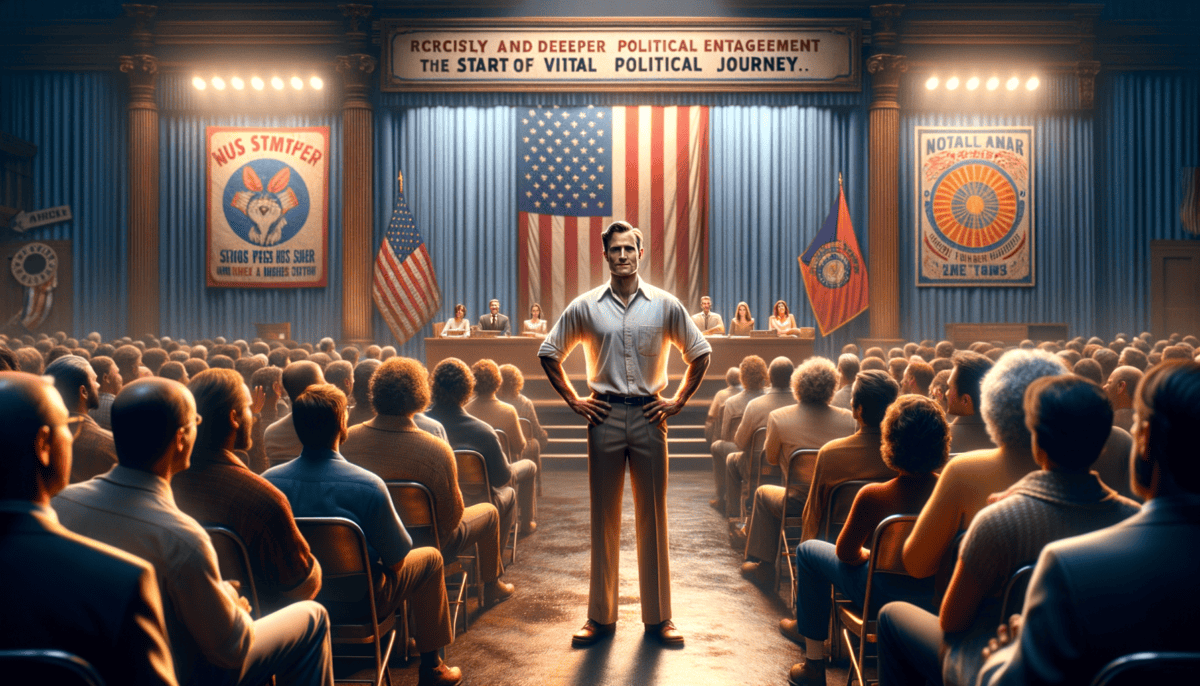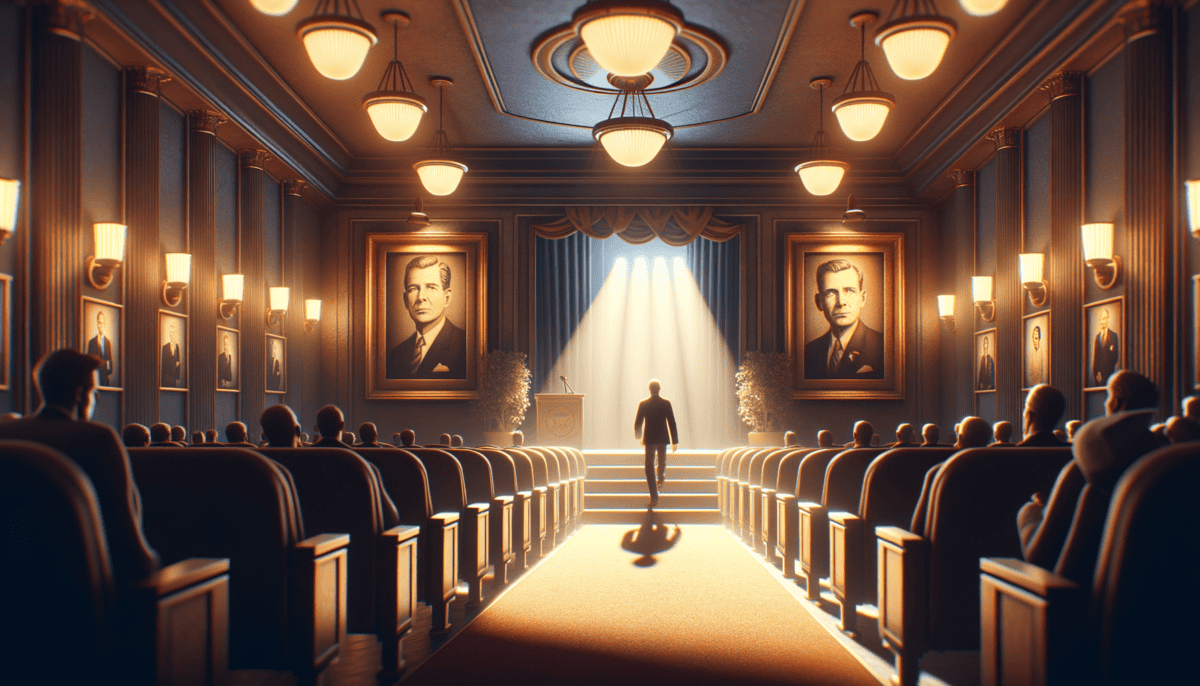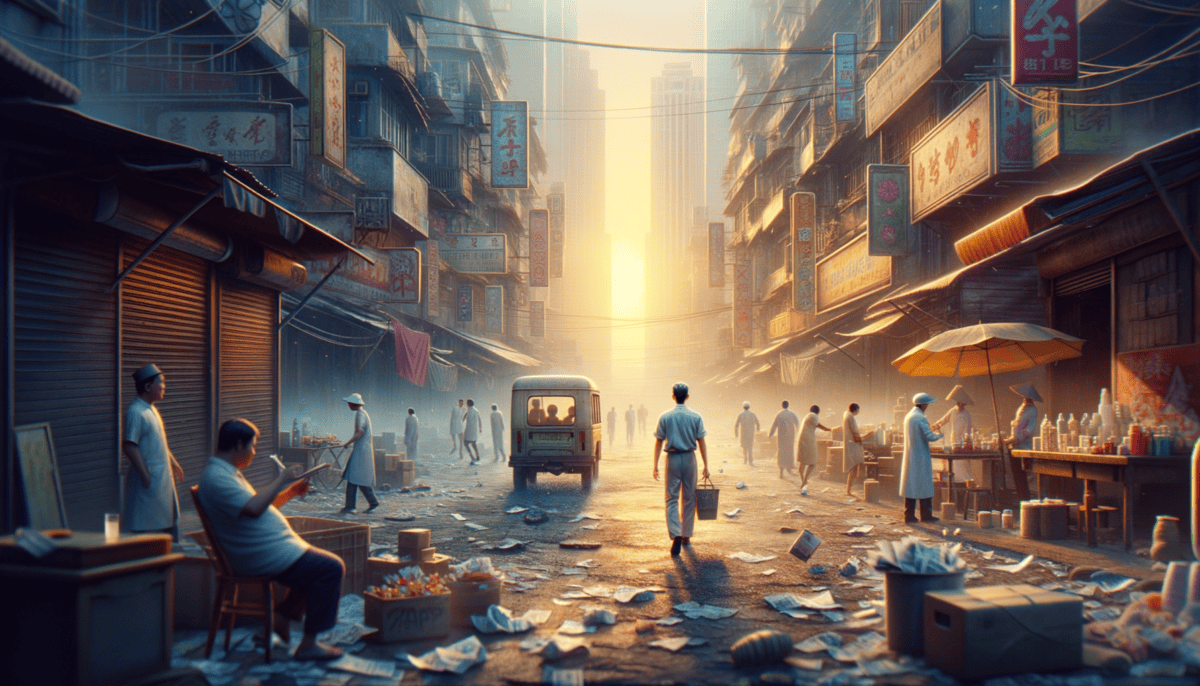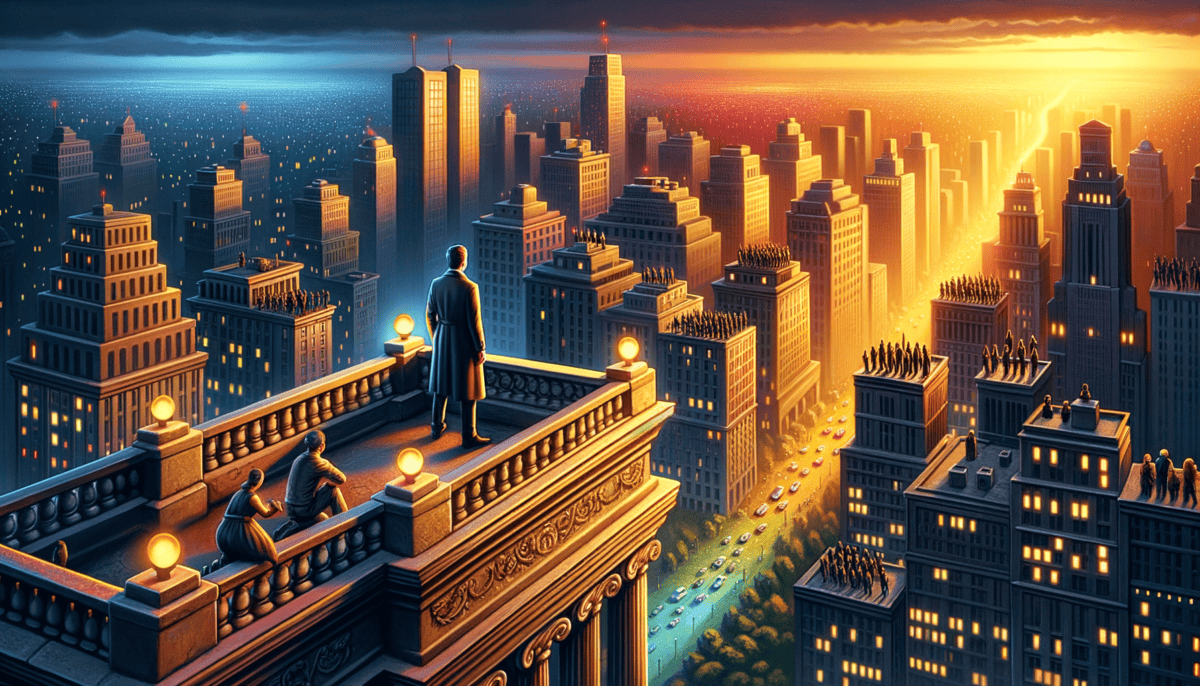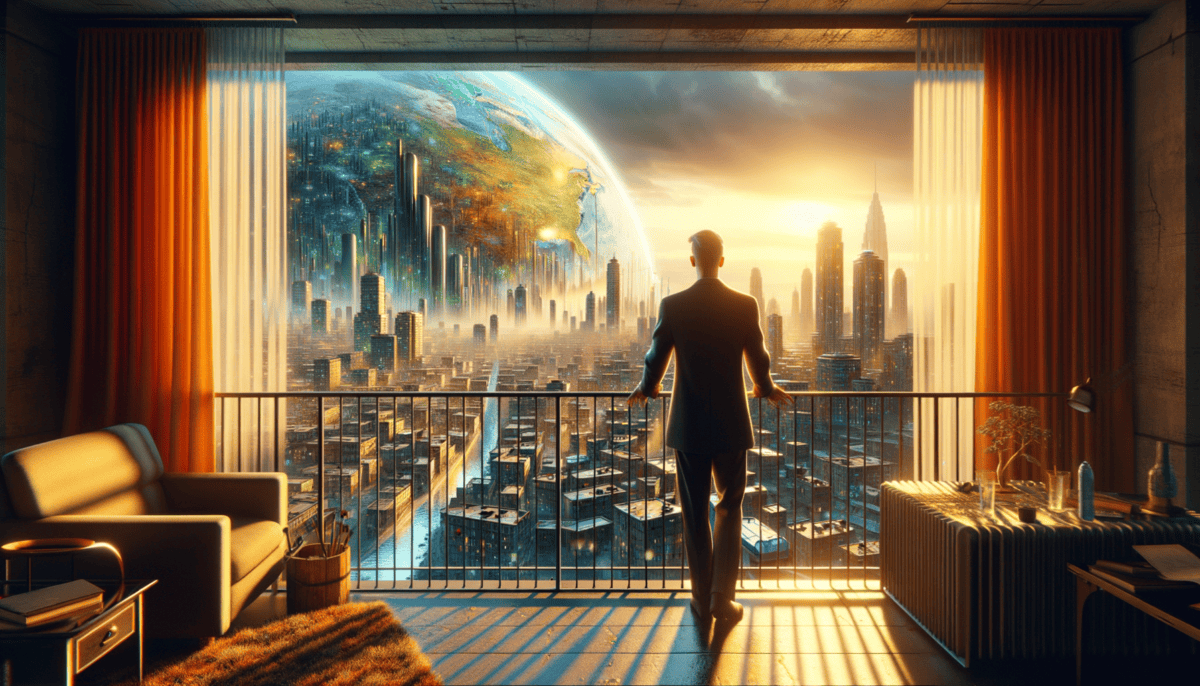The Early Years – Seeds of Rebellion
In a busy neighborhood of Caracas, Venezuela, little Nicolas played in the streets. The year was 1962, and the city buzzed with life. ️ The smell of fresh arepas floated through the air as street vendors called out to passing customers.
"Mama, I want to be like Papa one day!" young Nicolas would say, watching his father Jose work hard as a union leader. His mother, Teresa, would smile and ruffle his hair.
The Maduro family lived in a simple home in a working-class area. They didn't have much money, but they had big dreams. Nicolas learned early that life wasn't always fair, but that didn't stop him from hoping for better days.
“When I was young, I saw how hard people worked on the buses and in the streets. I knew something needed to change,” Nicolas would later tell his friends.
As a teenager, Nicolas found himself drawn to music . He played guitar in a rock band and grew his hair long. But it wasn't just music that caught his attention. He started noticing things about his city:
*Some kids couldn't go to school
*Many families didn't have enough food
*Workers weren't treated fairly
These problems made young Nicolas sad and angry. He wanted to help make things better.
A Different Path
Instead of finishing high school, Nicolas started working as a bus driver. Every day, he listened to passengers tell stories about their lives. He learned about their hopes and problems.
"Being a bus driver taught me more than any classroom could," Nicolas would often say. "I saw real life happening right in front of me."
Then something big happened. Nicolas heard about a young army officer named Hugo Chávez, who was talking about helping poor people. When they finally met, Nicolas felt like he had found someone who understood his dreams for Venezuela.
"We need brave people like you," Chávez told Nicolas. "People who know what real life is like for regular Venezuelans."
Nicolas began spending less time driving buses and more time going to political meetings. He learned how to speak to crowds and organize workers. His voice grew stronger, and more people started listening to him.
The Start of Something Big
By the 1990s, Nicolas had become an important union leader. He wore a mustache now, just like his father had. When he walked through his old neighborhood, people would stop to shake his hand.
"Remember when you used to drive the number 12 bus?" they would ask. Nicolas never forgot. He kept his bus driver's license in his wallet to remind him where he came from.
Young Nicolas, who once played guitar in the streets, was becoming someone important. But the biggest changes in his life were still to come. His path would take him places he never imagined when he was that little boy in Caracas.
Every night, before going to bed, Nicolas would look at an old photo of himself as a bus driver. It reminded him of his promise to help make Venezuela better for everyone. The seeds of change were growing, and Nicolas Maduro was ready to help them bloom.
Rising through the Ranks
The shiny government buildings of Caracas looked very different from Nicolas’s old bus route. ️ It was the early 2000s, and the young union leader had caught the attention of President Hugo Chávez.
“From the driver’s seat to the halls of power,” Nicolas would say with a smile, touching the bus driver’s license he still kept in his pocket.
“Being a union leader taught me to fight for others. Now I can help even more people,” Nicolas told his old friend Carlos one evening.
A New Journey Begins
Nicolas’s days changed a lot. Instead of steering a bus through busy streets, he now walked through important meetings. His voice, once used to call out bus stops, now spoke for workers across Venezuela.
The key steps in Nicolas’s rise included:
• Starting as a union spokesperson
• Becoming a member of parliament
• Working as Foreign Minister
• Being chosen as Vice President
“Remember when you couldn’t even afford new shoes?” his mother Teresa asked one day, looking at her son in his neat suit. Nicolas nodded, never forgetting where he came from.
Learning New Skills
As Foreign Minister, Nicolas traveled the world . He met presidents and kings. But he still talked like the bus driver he used to be, making everyone feel comfortable.
“Nicolas has a way with people,” President Chávez would say. “He understands what regular folks need.”
Working closely with Chávez, Nicolas learned how to:
– Make important speeches
– Handle tough questions
– Build friendships with other countries
– Help run a big government
Growing Stronger
By 2012, Nicolas had become one of the most trusted people in Venezuela’s government. President Chávez relied on him more and more.
“Do you ever miss driving your bus?” a reporter once asked.
“Every day,” Nicolas answered. “But now I’m helping to drive our whole country forward.”
Some nights, Nicolas would visit his old neighborhood. The smell of arepas still filled the air, but things were different now. People would gather around him, sharing their hopes and worries.
The simple bus driver had become a powerful leader. But bigger changes were coming – changes that would test everything Nicolas had learned. The next part of his story would be the hardest yet.
As the sun set over Caracas, Nicolas looked out from his office window. The city lights sparkled below, reminding him of all the people counting on him. His journey from the driver’s seat was far from over.
Succession and Sudden Power
The year was 2013, and dark clouds hung over Venezuela. President Hugo Chávez was very sick. In the hospital halls, Nicolas Maduro sat quietly, thinking about his friend and teacher.
A Sad Goodbye
“Take care of our people,” Chávez had told Nicolas, his voice weak but still full of hope. Those words would change everything.
“I will continue his work,” Nicolas promised, tears in his eyes. “For all Venezuelans.” ️
Becoming President
Things happened very fast after that. Nicolas had to run for president right away. Some people were happy about this, but others weren’t sure about him.
“From driving buses to leading the country – can he do it?” many people wondered.
The election was very close. When the votes were counted, Nicolas had won by a tiny amount. Some people said it wasn’t fair, but Nicolas became the new president.
• Nicolas moved into the presidential palace
• He started wearing Chávez’s special red jacket
• He tried to speak like Chávez did
• He promised to keep Chávez’s dreams alive
Hard Times Begin
Being president wasn’t easy. Money problems started getting worse. Food became harder to find in stores. Many people were unhappy.
“We must stay strong,” Nicolas would say on TV. “Together we can fix these problems.” But fixing things was harder than he thought.
Some days, Nicolas would touch his old bus driver’s license and remember simpler times. The streets he once drove now had people protesting. The happy crowds that used to greet Chávez now often shouted angry words.
Keeping Control
Nicolas tried different ways to stay in charge:
– He talked about Chávez’s spirit being with him
– He blamed other countries for Venezuela’s problems
– He gave food and help to people who supported him
– He made sure the army stayed on his side
At night, looking at Caracas from the presidential palace, Nicolas thought about how far he’d come. The city lights still sparkled, but they seemed dimmer now. The weight of leading a whole country felt heavy on his shoulders.
The bus driver who became president faced his biggest test yet. More challenges were coming, and they would test him like never before. The road ahead was full of bumps and turns, just like his old bus route – but now the whole country was along for the ride.
Economic Turmoil and International Pressure
The sun rose over Caracas, but the streets weren’t as busy as they used to be. Nicolas Maduro looked out his window at the quiet city. Things were getting harder for everyone.
Money Problems
“Mr. President, the money isn’t worth much anymore,” his advisor said one morning. Money in Venezuela was losing its value so fast that people needed big bags of it just to buy bread!
“Remember when one bolivar could buy a week’s groceries? Now it barely buys a piece of candy,” an old shop owner told his customers.
People Moving Away
Many families packed their bags and left Venezuela. They walked long distances to other countries, hoping to find better lives. ♂️
“My neighbors left yesterday,” a little boy told his mother. “Will we have to leave too?”
Nicolas felt sad seeing so many people go. But he kept saying everything would get better:
• Made new money with fewer zeros
• Gave extra food to poor families
• Asked other countries for help
• Blamed “enemies” for the problems
Other Countries Get Mad
The United States and many other countries weren’t happy with Nicolas. They stopped doing business with Venezuela and told him to change his ways.
“We don’t need them!” Nicolas would say on TV. “Venezuela is strong!”
But without help from other countries, it got harder to:
– Sell oil (Venezuela’s most important product)
– Buy medicine and food from abroad
– Get parts to fix broken machines
– Keep factories running
Standing Strong
Some countries still helped Venezuela. Russia and China sent food and medicine. Cuba sent doctors. But most world leaders wouldn’t talk to Nicolas anymore.
Daily Life Gets Harder
In the streets, people waited in long lines for food. Hospitals ran low on medicine. Many stores closed their doors.
“Remember to share with your neighbors,” mothers told their children. Venezuelans helped each other through the hard times.
Nicolas kept saying Venezuela would win in the end. He told stories about Simon Bolivar, Venezuela’s hero who fought for freedom long ago. But many people wondered if Nicolas could really fix things.
The lights of Caracas still shone at night, but now they flickered more often. Power cuts became common. Yet Nicolas stood at his window, planning his next moves. The pressure from other countries was strong, but he wasn’t ready to give up.
Power Struggles and Control
The morning sun cast long shadows over the presidential palace in Caracas. Nicolas Maduro sat at his desk, watching protest videos on multiple screens. ️
Fighting Back
“They want to take our power,” Maduro said to his closest advisors. “But we won’t let them.”
In the streets below, people carried signs and shouted. But Maduro’s special police were always watching. ♂️
The New Challenger
A young man named Juan Guaidó stepped forward. He said he should be president instead of Maduro.
“Venezuela needs change!” Guaidó told big crowds. “We want freedom!”
Many countries said they liked Guaidó better. But Maduro wouldn’t give up his job.
Keeping Control
• Used the army to stop protests
• Put his friends in important jobs
• Changed laws to help himself
• Controlled what people saw on TV
“The people still love me,” Maduro told his wife Cilia one evening. “They know I’m fighting for them.” ❤️
Making New Rules
Maduro changed Venezuela’s most important rules – the constitution. He made a new group to write laws, but only picked people who liked him.
But many people didn’t believe him anymore. They saw their votes didn’t matter like before.
Friends and Enemies
Maduro knew who his real friends were. Russia and Cuba helped him stay strong. China gave him money.
“See? We’re not alone,” he told his people on TV. “Big countries still support us!”
At night, Maduro walked through his palace gardens. The city lights twinkled below. He thought about how far he’d come from his days driving a bus.
“No one can push me out,” he whispered to himself. “I’ll do whatever it takes to stay.”
Learning to Fight
Maduro got better at stopping people who didn’t like him. He learned new tricks:
– Making his enemies look bad on TV
– Giving food to people who supported him
– Using social media to spread his messages
– Making sure the army stayed loyal
Some people left Venezuela because they were scared. Others stayed and kept fighting. But Maduro held tight to his power, like a captain steering his ship through a storm.
As the sun set over Caracas, Maduro stood at his window. He knew tomorrow would bring new challenges. But he had survived this long, and he wasn’t about to stop now.
Legacy of Power
The Venezuelan sun blazed hot over Caracas in 2024. Nicolas Maduro walked through his presidential office, touching the wooden desk where he’d sat for over a decade.
A Changed Country
“Look at what we’ve built,” Maduro said to his wife Cilia. But when he looked out the window, he saw a different Venezuela than before.
In the streets, Maria, a little girl, asked her mother, “Why did cousin Pedro move to Colombia?”
“Sometimes people need to find better chances,” her mother answered softly. ♀️
New Friends
Maduro found help from different places. Russia, China, and Iran became his new best friends.
“Venezuela is strong because we have good friends!” Maduro told his people on TV. “We don’t need the United States!”
Looking Forward
• Better food for everyone
• More jobs
• Cheaper things to buy
• Happy families staying together
“The future is bright,” Maduro said in speeches. But many people weren’t sure anymore.
Different Views
Some people still liked Maduro. They got special food boxes and jobs from his government.
“He takes care of us,” said José, who worked for the government. “He’s our leader.”
But others wanted change. They remembered when Venezuela was rich and happy.
A Leader’s Thoughts
Late at night, Maduro sat in his garden. He thought about his journey from bus driver to president.
The city lights sparkled below. In homes across Caracas, families talked about their hopes for tomorrow.
The Road Ahead
Venezuela stood at a crossroads. Some countries started talking to Maduro again, hoping to help Venezuela get better.
“Maybe things can change,” whispered Ana, a teacher, to her students. “Maybe tomorrow will be brighter.” ⭐
The story of Nicolas Maduro wasn’t over. Like his country, he faced an uncertain path. But one thing was sure – his rise from bus driver to president would be remembered for many years to come.
As night fell over Venezuela, millions of people looked up at the same stars, each holding their own dreams for their country’s future.


